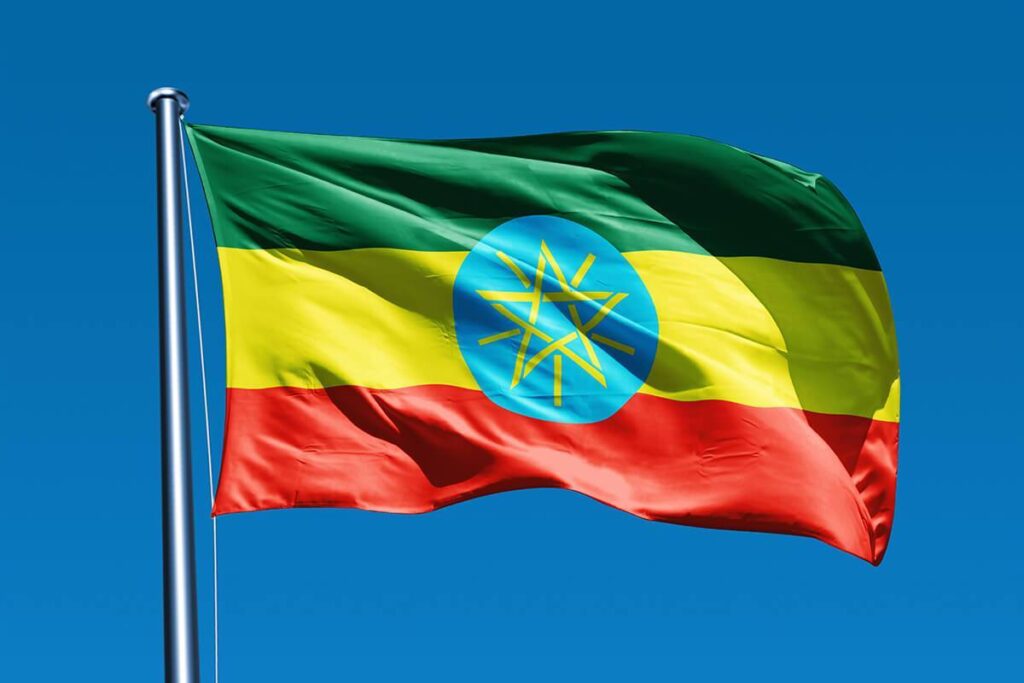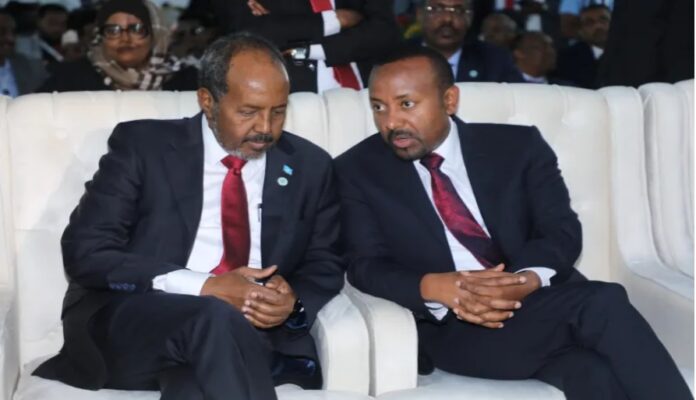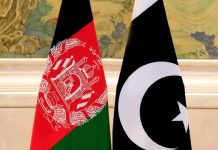- The Somali federal government has given the Ethiopian ambassador in Mogadishu a 72-hour deadline to exit the country for “comprehensive discussions”. Additionally, it has mandated the shutdown of the Ethiopian consulates in Hargheisa, Somaliland’s capital, and Garoe, Puntland’s capital
The diplomatic crisis between Somalia and Ethiopia has escalated significantly following the controversial memorandum of understanding signed in January. This agreement, between the authorities of Addis Ababa and the breakaway republic of Somaliland, permits Ethiopian access to the Red Sea.
The Federal Government of Somalia has responded by requesting the Ethiopian ambassador in Mogadishu, Muktar Mohamed Ware, to leave the country within 72 hours for “in-depth consultations”. Additionally, the Ethiopian consulates in Hargheisa, the capital of Somaliland, and in Garoe, the capital of Puntland, have been ordered to close for a period of seven days. These measures were announced in a statement from the Somali Ministry of Foreign Affairs.

The statement emphasized that these actions were taken to safeguard the sovereignty, unity, independence, and territorial integrity of the Federal Republic of Somalia. It stressed the importance of mutual respect for sovereignty and territorial integrity in maintaining and promoting peaceful relations with all neighboring countries.
ADDIS ABABA – This decision follows a recent meeting in Addis Ababa between a delegation from Puntland, led by the Minister of Finance, Mohammed Farah Mohammed, and the Ethiopian Foreign Minister Mesganu Arga. The meeting focused on potential areas of cooperation in trade, investment, energy, infrastructure, security, and education. The Puntland regional delegates expressed a desire to strengthen relations with Ethiopia, a move that could be interpreted in Mogadishu as a gesture of defiance given the recent and unresolved disputes with Addis Ababa.
The visit of the Puntland delegation is likely to have repercussions, especially in light of recent developments related to the ongoing dispute between the federal government of Somalia and some federated states, including Puntland. This dispute follows the controversial constitutional reform desired by President Hassan Sheikh Mohamud.
After weeks of intense debate, Somalia’s bicameral federal parliament approved amendments to the first four chapters of the country’s provisional Constitution last Saturday. The reform empowers the president to appoint and dismiss the prime minister, replacing the previous requirement for a parliamentary vote of confidence. This change allows for greater executive flexibility.
Somalia’s politics, often marked by controversies between presidents and prime ministers, are influenced by clan-based dynamics. The reform, which has faced opposition from some political actors, sets the government’s constitutional bodies’ term at five years, recognizes regional state presidents as leaders, and promotes a multi-party system with three political parties.
Simultaneously, a diplomatic crisis persists between Somalia and Ethiopia due to a controversial agreement signed on January 1st by the Ethiopian government and the Somaliland authorities. This agreement, rejected by Mogadishu, allows Ethiopia access to the Red Sea and triggers regional repercussions. Ethiopia will receive 20 kilometers of land along Somaliland’s Gulf of Aden coast for at least 50 years and construct a military base. In return, Hargheisa will receive a share of Ethiopian Airlines, and Ethiopia will recognize Somaliland’s independence.
In February, Somalia signed a defense and security agreement with Turkey, seemingly to deter Ethiopia. The ten-year agreement allows Turkey to provide training and equipment to the Somali Navy, enabling Somalia to protect its marine resources and territorial waters from threats such as terrorism, piracy, and foreign interference. Turkey will receive 30 percent of the revenues from the Somali Exclusive Economic Zone while maintaining complete authority over the management and defense of Somalia’s waters.





